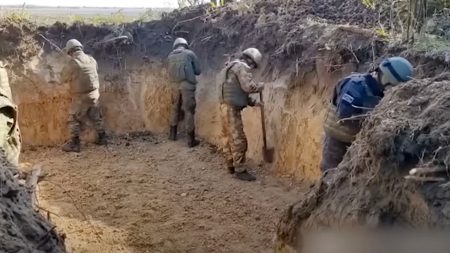The recent Southport murders, perpetrated by Axel Rudakubana, have exposed critical flaws in the UK’s anti-terror program, Prevent. Despite being flagged to the program three times, Rudakubana was not deemed a significant enough threat to warrant intervention. This tragic oversight underscores a broader, systemic issue within Prevent: its failure to effectively address the growing threat of violence stemming from radicalized individuals, particularly young men operating independently. While the government has acknowledged the need for reform, the current situation paints a grim picture of a system struggling to keep pace with a rapidly evolving threat landscape. The case highlights a disturbing trend of missed opportunities to intervene before violent acts occur, raising serious questions about the efficacy of Prevent and its ability to protect the public.
The scale of the problem is far larger than the single case of Rudakubana. Data reveals that over the past four years, 1,830 violence-prone teenagers have been referred to Prevent. Shockingly, only 228 of these individuals were accepted into the program, leaving over 1,500 potentially dangerous individuals unaccounted for. This statistic paints a chilling picture of a vast pool of individuals with violent tendencies who are not receiving the necessary intervention and support. This raises immediate concerns about public safety and the potential for further acts of violence. The failure to integrate these individuals into Prevent represents a significant vulnerability in the UK’s counter-terrorism strategy, a ticking time bomb waiting to explode.
The revelation that such a large number of potentially dangerous individuals have slipped through the net of Prevent has sparked urgent calls for reform. Home Secretary Yvette Cooper has acknowledged the pressing need for immediate changes to the program. The failure to effectively address the threat posed by these individuals highlights a systemic failure within Prevent and underscores the urgency of implementing meaningful reforms. The tragic outcome in Southport serves as a stark reminder of the real-world consequences of these failures and reinforces the need for swift and decisive action.
Beyond the immediate need for reform, the case of Rudakubana raises broader questions about the nature of the threat the UK faces. Sir Keir Starmer’s warning of a new and dangerous threat emanating from lone actors, particularly young men radicalized online, echoes the circumstances surrounding the Southport murders. However, the data suggests that this phenomenon is not new, but rather a long-standing and escalating problem that Prevent has consistently failed to address. The system’s inability to identify and intervene with these individuals underscores a crucial gap in the UK’s counter-terrorism strategy.
The Southport murders also highlight the urgent need for a more proactive approach to preventing violence. Waiting for individuals to commit violent acts before intervening is a reactive strategy that has proven tragically ineffective. Prevent needs to shift its focus from reacting to violence to proactively identifying and engaging with individuals at risk of radicalization. This requires a more nuanced understanding of the factors that contribute to violent extremism and a more tailored approach to intervention. A more preventative approach would involve working with communities, families, and schools to identify individuals at risk and provide them with the support they need to disengage from violent ideologies.
Furthermore, the conversation surrounding Prevent needs to move beyond simply tweaking the existing framework. The current system is clearly failing to adequately address the evolving threat landscape. A more fundamental re-evaluation of the program’s objectives, methodologies, and resources is necessary. This includes examining the criteria used to assess risk, the effectiveness of intervention programs, and the adequacy of funding and staffing. A comprehensive review of Prevent is essential to ensure that it is equipped to meet the challenges of a rapidly changing world. The Southport murders serve as a stark reminder that the cost of inaction is far too high.











